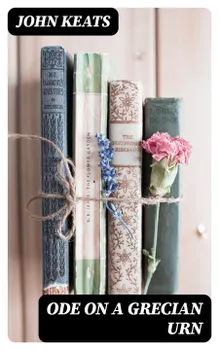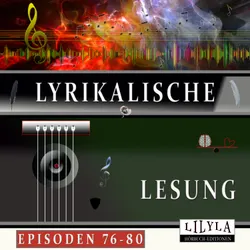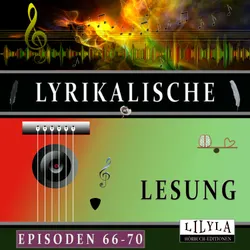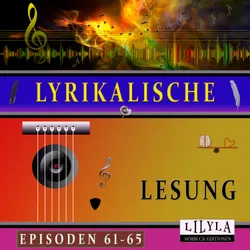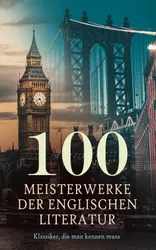John Keats's "Ode on a Grecian Urn" masterfully intertwines rich imagery and profound philosophical inquiry, capturing the essence of beauty and truth through the lens of an ancient artifact. The poem unfolds in a series of contemplative stanzas, where the speaker engages with the urn's frozen scenes, contemplating the paradox of ephemeral human experiences against the timelessness of art. Keats employs a Romantic style, imbued with sensual language and vivid descriptions, to explore themes of love, transience, and the interplay between reality and idealism, situating the work within the broader Romantic movement's pursuit of transcendence through art. John Keats, one of the most prominent figures of the Romantic era, was deeply influenced by his own tragic experiences and the fleeting nature of life. His background in medicine, coupled with a passion for poetry, allowed him to merge scientific observation with artistic expression. The creation of "Ode on a Grecian Urn" was spurred by an intense exploration of mortality and the enduring legacy of beauty, which characterizes much of his oeuvre. This compelling ode is essential reading for anyone interested in the nuances of art, beauty, and the human condition. Keats's eloquent exploration invites readers to reflect on their own experiences with art and its capacity to immortalize moments that life itself cannot sustain.
Ode on a Grecian Urn
Starten Sie noch heute mit diesem Buch für € 0
- Hol dir während der Testphase vollen Zugriff auf alle Bücher in der App
- Keine Verpflichtungen, jederzeit kündbar
Autor*in:
Sprache:
Englisch
Format:
Lyrikalische Bibliothek
Heinrich Heine, Annette von Droste-Hülshoff, Charles Baudelaire, John Keats, Rainer Maria Rilke, Georg Heym, Wilhelm Busch, Arno Holz, Johann Wolfgang von Goethe, Christian Morgenstern, Joachim Ringelnatz, Georg Trakl, Ludwig Tieck, Stefan Zweig, Hugo von Hoffmannsthal, Edgar Allan Poe, Frank Wedekind, Franz Werfel, Wolfgang Borchert, Karl Kraus, Kurt Tucholsky, Friedrich Nietzsche, Else Lasker-Schüler, Ludwig Kalisch, Jakob van Hoddis, Joseph von Eichendorff, Gotthold Ephraim Lessing
audiobookLyrikalische Lesung Episoden 91-95
Arno Holz, John Keats, Annette von Droste-Hülshoff, Charles Baudelaire, Rainer Maria Rilke
audiobookLyrikalische Lesung Episoden 76-80
Christian Morgenstern, Karl Kraus, Wolfgang Borchert, Kurt Tucholsky, Annette von Droste-Hülshoff, John Keats, Rainer Maria Rilke
audiobookLyrikalische Lesung Episoden 66-70
John Keats, Wilhelm Busch, Ludwig Tieck, Rainer Maria Rilke, Johann Wolfgang von Goethe
audiobookLyrikalische Lesung Episoden 61-65
Wilhelm Busch, Joachim Ringelnatz, Arno Holz, John Keats, Charles Baudelaire, Annette von Droste-Hülshoff, Else Lasker-Schüler, Georg Heym, Heinrich Heine
audiobookLyrikalische Lesung Episoden 56-60
Johann Wolfgang von Goethe, John Keats, Annette von Droste-Hülshoff, Arno Holz, Wilhelm Busch, Georg Heym, Heinrich Heine, Franz Werfel, Charles Baudelaire, Rainer Maria Rilke, Friedrich Nietzsche, Hugo von Hofmannsthal, Edgar Allan Poe
audiobookLyrikalische Lesung Episoden 46-50
Ludwig Kalisch, Else Lasker-Schüler, Annette von Droste-Hülshoff, Edgar Allan Poe, Charles Baudelaire, Hugo von Hoffmannsthal, Arno Holz, John Keats, Heinrich Heine, Karl Kraus, Georg Heym, Joachim Ringelnatz, Ludwig Tieck, Franz Werfel, Kurt Tucholsky, Johann Wolfgang von Goethe, Rainer Maria Rilke, Jakob van Hoddis, Wilhelm Busch
audiobook100 Meisterwerke der englischen Literatur - Klassiker, die man kennen muss
George Orwell, Charles Dickens, Jane Austen, Katherine Mansfield, H.P. Lovecraft, William Wordsworth, John Keats, Percy Bysshe Shelley, Robert Burns, John Milton, William Shakespeare, Christopher Marlowe, Geoffrey Chaucer, Laurence Sterne, Henry Fielding, Mary Shelley, Emily Brontë, Charlotte Brontë, Anne Brontë, William Makepeace Thackeray, George Eliot, D. H. Lawrence, Herman Melville, Thomas Wolfe, Virginia Woolf, Joseph Conrad, Sinclair Lewis, Walt Whitman, Edgar Allan Poe, Oscar Wilde, Jerome K Jerome, Washington Irving, Bram Stoker, H.G. Wells, Daniel Defoe, Lew Wallace, James Fenimore Cooper, Jonathan Swift, Robert Louis Stevenson, Mark Twain, Lewis Carrol, Edward Bulwer-Lytton, F. Scott Fitzgerald, Arthur Conan Doyle, Jack London, Henry David Thoreau, G.K. Chesterton, Edith Wharton, Henry James, Thomas Hardy, Margaret Mitchell, Kate Chopin, Willa Cather, Charlotte Perkins Gilman, James Joyce, John Galsworthy, Francis Hodgson Burnett, Lucy Maud Montgomery, Louisa May Alcott, Rudyard Kipling
bookLyrikalische Lesung Episoden 41-45
Karl Kraus, Charles Baudelaire, Rainer Maria Rilke, Wolfgang Borchert, Georg Trakl, Wilhelm Busch, John Keats, Georg Heym, Annette von Droste-Hülshoff, Else Lasker-Schüler, Heinrich Heine, Johann Wolfgang von Goethe, Arno Holz, Friedrich Nietzsche, Stefan Zweig, Ludwig Tieck, Frank Wedekind, Joachim Ringelnatz, Christian Morgenstern
audiobookLyrikalische Lesung Episoden 36-40
John Keats, Georg Heym, Annette von Droste-Hülshoff, Wilhelm Busch, Joachim Ringelnatz, Arno Holz, Stefan Zweig, Rainer Maria Rilke, Edgar Allan Poe, Ludwig Tieck, Charles Baudelaire, Frank Wedekind, Ludwig Kalisch, Heinrich Heine, Kurt Tucholsky, Franz Werfel, Johann Wolfgang von Goethe
audiobookLyrikalische Lesung Episoden 31-35
Heinrich Heine, Johann Wolfgang von Goethe, John Keats, Hugo von Hoffmannsthal, Charles Baudelaire, Wilhelm Busch, Christian Morgenstern, Arno Holz, Georg Heym, Annette von Droste-Hülshoff, Karl Kraus, Georg Trakl, Ludwig Tieck, Joachim Ringelnatz, Rainer Maria Rilke
audiobookThe Complete Poetry of John Keats
John Keats
audiobook
